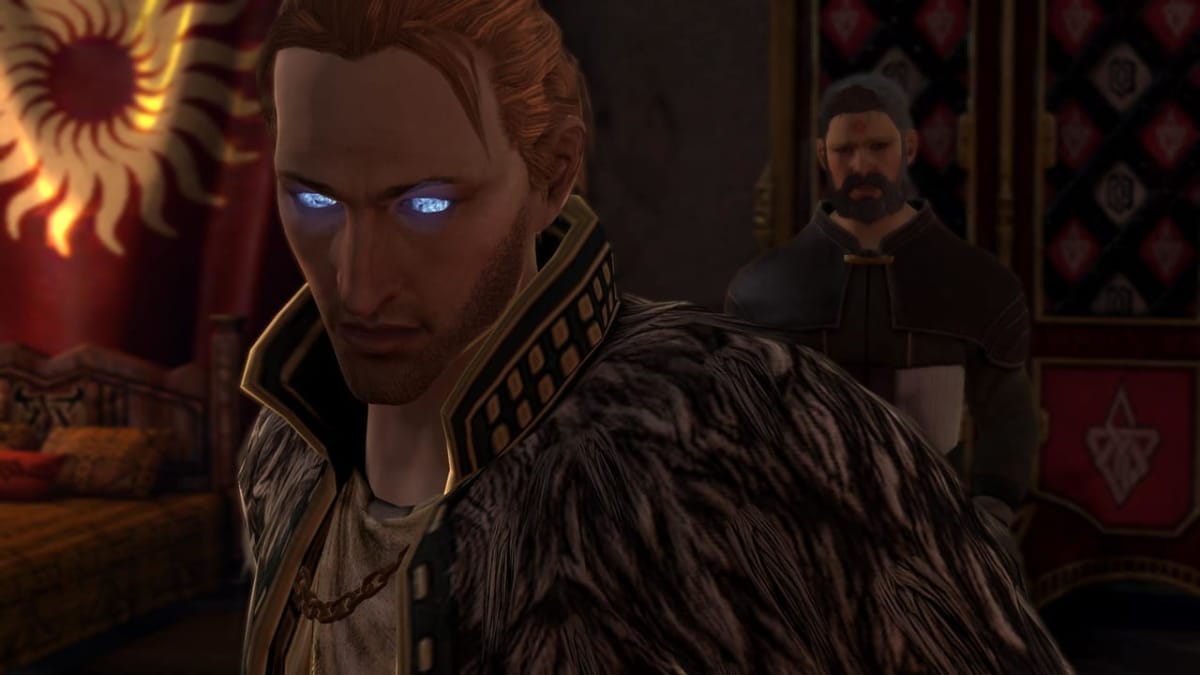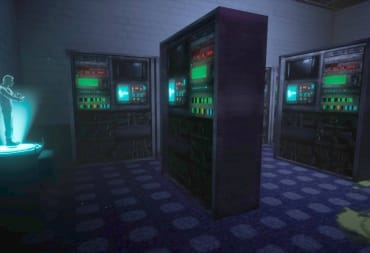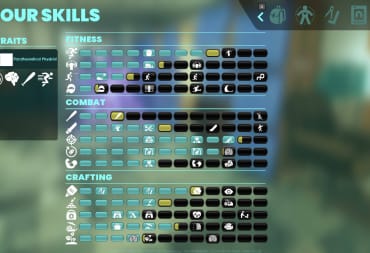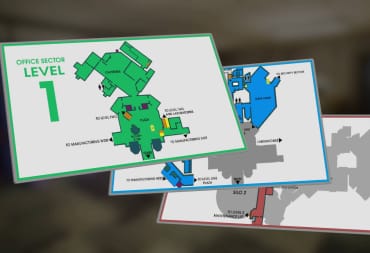When one thinks of the current events that plague us today, it is hard not to get political. The world over has seen divisive rhetoric regarding politics, identity, religion, and freedom of expression manifest en masse, and the growing outcry between groups has slowly spiraled into chaos. A decade ago, there was relative peace; today, that peace is shattered due to fanatical devotion to a cause, identity, or belief, with those flames fanned by those in power.
The world of video games is not immune to this discourse either, despite our inclinations to separate entertainment from politics. Games as an art form have confronted such topics in the past and sometimes are too prophetic in their interpretation of events. While many games often tackle such issues within their periphery, a few games offer a more personal stake in such socio-political machinations, often without the player’s consent. One such example is Dragon Age II and the treatment of one of the game’s most tragic yet complex characters: Anders.
The story of Anders is a hard one to nail down. A renegade mage who has escaped the Chantry circle countless of times, Anders was first introduced in Dragon Age: Origins – Awakening, the large-scale expansion pack in BioWare’s Dragon Age: Origins. Early in the game, Anders is possibly recruited into the Grey Wardens, a group of fighters who hope to protect the world of Thedas from creatures known as the Darkspawn.
While being the primary mage for your party, Anders as a character is cemented quickly with his aloof character, but bubbling under the surface is a fierier side to him. Anders, as a mage, sees the existence of the Circle as a hindrance to his freedom, believing that the tower is not a place for him. His resentment of the Circle - and by extension, the templars - is somewhat contradictory in Awakening.
Anders constantly rails against the injustices of the Circle, but he also sees the value in the Chantry’s oversight over the mages. One interesting exchange in Awakening between the Warden and former companion Wynne sheds light on the unrest in the Circle, with even Anders commenting that the mages attempting to “break away” from the Chantry is going too far.
This does offer us an insight into Ander’s initial characterization, one that has a rebellious streak within him but is not willing to push the boundaries further out of fear of violence. Anders is, at the time of Awakening, all about self-preservation. He is looking out for his freedom, despite his resentment to the Chantry and the Circle for all mages. In a way, this core belief of Anders is an apathetic but practical mindset, one that showcases his lack of commitment to a cause because of his value of personal freedom.
Anders, however, perhaps goes through the most dramatic transformation of all in between Awakening and Dragon Age II, thanks in part to the spirit of Justice, one of the other companions in Awakening. Spirits in the Dragon Age world exemplify specific virtues and beliefs, essentially being shackled to them as defining traits.
Justice, as a spirit, cannot comprehend why a free mage such as Anders does not take up arms against his oppressors, arguing with him that he must bring freedom to more mages and act against the Chantry’s oppression of his people. Anders rebukes these comments, again showing his more selfish individuality in the process, offering a perfect foil to Justice and his more narrow-minded mindset.
Of course, things change. The end of Awakening sees Anders and Justice taking on a different role together, with Anders being a willing host to Justice as the spirit’s connection to the mortal world begins to wane. While the details are left vague (mostly due to the multiple endings that can be possible in Awakening) Anders willingly lets Justice “possess” him in a sense, but his bubbling anger against the Chantry, the Templars, and the oppression of the Circle quickly transforms Justice into a new spirit, one known as Vengeance.
Vengeance, unlike Justice, is more proactive within Anders, slowly changing him and his ideology. Vengeance radicalizes Anders to a degree that he would find appalling, constantly harping on the oppression of mages in the city of Kirkwall, where mages and templars are often embroiled in conflict when compared to the more amicable political relationship seen in Ferelden.
The Kirkwall Circle is one of true oppression, with mages being made tranquil - essentially removing their personality - over the slightest crimes. Many of them turn to Blood Magic to combat such evils, to survive the tightening grip.
It is a recipe for disaster and one that Dragon Age II as a game keeps as a running theme throughout its narrative. Anders, as seen in Dragon Age II, is a much darker character. He retains some of his aloof charm and sarcastic wit, but it is clear he struggles to control his growing desire for vengeance in a city that is perhaps as uncaring as you get for the plight of mages. He is not the only one with this issue either; the introduction of red lyrium, an addictive substance that in and of itself became a corrupting influence on many characters in the game, including the Knight Commander of the Templars, cannot be understated either.
It is these outside influences that can serve as a metaphor for the growing radicalization of these characters; the physical manifestation of corruption in the form of lyrium or spirits replaces the politically charged rhetoric of extreme philosophies, such as Fascism and Communism, to name two real-world examples.
The companions of Dragon Age II are arguably the best-written cast of characters BioWare has ever created, but they often get flack for being “one note” in terms of their personalities. Anders has been argued as such; his harping on the oppression of mages and how mages need to be free as a collective group is a part of his personality, but that is just a surface reading of him.
Throughout the game, Anders proves himself to be an invaluable ally to Hawke. Anders is required, for example, to save Hawke’s sibling from death in the Deep Roads, as well as save the life of Varric's brother Bartrand, if the player chooses these options. His abilities as a healer make him invaluable, and his compassion for helping others, despite his growing prejudice towards the Chantry and the templars, is a virtuous trait.
The difference between the two games, however, is how Anders no longer backs down to the thought of revolution. In Awakening, he is content with his freedom; in Dragon Age II, he is only content if all mages are free. This thrusts Anders into conflict with many characters in the game, including possibly Hawke based on player choice.
Perhaps the most outspoken foil to Anders is the mage-hating Fenris, an escaped elven slave from the Tevinter Imperium. Much like Anders, Fenris has seen the darker side of his respected world; mages run amok with power and use blood magic and demons to get ahead. Fenris, like Anders, has been scarred by his experiences, and the two often engage, sometimes heatedly, over the merits and rights of mages.
Their interaction is also a microcosm of the growing divide between the city of Kirkwall. The simmering issues between the mages and templars become a lit powder keg by Act III of the game, with previous acts showcasing the worst of both sides to the player. From a racist templar arguing for a “tranquil solution” to the mages (a thinly veiled reference to Ethnic Cleansing) to a mage serial killer butchering a woman, the worst of both sides manifest heavily in the city of Kirkwall, making the general conflict between the two groups increasingly come to an impasse.
BioWare was keen on a few things when coming to the finale of Dragon Age II. The first, and arguably most controversial, was the lack of agency by the player regarding its overall outcome. Ultimately, despite the best efforts of Hawke and even other individuals in the game, the fight is inevitable as the extremes of both sides come to a head. It is a bleak outcome; one that takes away all the power the players had not because of they weren’t proactive in the conflict, but because they were incapable of stopping it.
Of course, attempts at peace were made. An interesting fact is that some of the moderate templars and mages in both camps were pushing for it, but they too, were killed by radicals on each side. The Chantry itself, a powerful but neutral force, attempts to maintain order as the conflict grows. Some call it cowardly, while others welcome the sense of normalcy needed to end the conflict peacefully. But as Anders states, when his final plan comes to fruition, “there can be no peace.”
By Act III, Anders becomes more sardonic and dour, isolates himself from his companions, and even provides Hawke a secretive quest to procure some magical ingredients, which he claims will “take care of Vengeance forever.” All of this is a front for his master plan: placing a magical bomb in the Chantry itself and using it as the match to spark the powder keg between the sides. His vengeance is complete; Anders knowingly and willingly, without the need of the spirit inside him, marks the last straw between the two sides.
It is a dark moment, one that is rife with conflict and emotion. Both sides, mages and templars, are bewildered by the act of terrorism, and your companions have conflicting opinions on the matter as well, with Hawke, stuck in the middle, powerless to stop what happens next. Hawke must finally do something they may have avoided the entire game: they must pick a side.
Much like the politics of yesterday and today, we see extremities of both sides, the futility of moderates trying to control them, and how individuals such as Anders are transformed into messianic figures or demonic pariahs. A real-world example would be the abolitionist John Brown, a devout Christian who took up arms, murdered at least a dozen men in four years, and tried to take over a fort to force an armed slave rebellion in 1859. The North saw Brown as a hero, a champion of rights, and a martyr for their cause, the South, a radical terrorist, using fear and death to push his agenda.
As a role-playing game, we see the good and bad of the arguments between the mages and templars. We have companions who represent their respected beliefs, and characters whispering into the ear of the player based upon the choices they make throughout the game to this moment. Players are given two major choices during the endgame: which side to choose and how to deal with Anders. Does the player see Anders as a militant freedom fighter, finally committing himself to a just cause despite the consequences of his actions? Is he a terrorist, deeply radicalized like the rest of the city, who pushed things too far to the brink of destruction for his beliefs?
Do you execute Anders for what he did, losing a party member in the final stretch of the game, or do you let him go, much to the chagrin of others in your group? Every decision you make in the game leads to these moments here, and the choices made can tear your companions apart.
For Anders, though, it is the final arc for his character. It is clever how BioWare plays the moment, leaving the choice of Anders' fate in the hands of the player, and for the player to react to his act as the character of Hawke - a true role-playing moment, perhaps even one of the best conceived for an RPG. In many ways, this highlights the true problem when trying to analyze a character such as Anders: how you view him, and his actions, depends on how sympathetic you are to his cause. Like Brown, perceptions vary and lead us to both character and personal soul-searching based on the choices we need to make at the moment.
Anders is still a controversial figure. Despite only being mentioned a few times in Dragon Age: Inquisition, his shadow looms over the events in that game too. The conflict between the mages and templars is briefly resolved by the Inquisition, but the ending of the game can lead down many paths regarding how mages and templars coexist with each other. In some ways, old habits die hard, and the issues between the two sides are far from fully resolved.
Did the ends truly justify the means? It is ultimately a question we ask ourselves, but it certainly makes Anders one of the most dynamic, if controversial, characters ever made for a video game. His growth as a character is a dark turn of events, one that shows how even the most kind or passionate of people can be seduced by their own beliefs and their own experiences.
This post was originally published in 2017 as a part of our Character Select series. It's been republished to have better formatting.
Have a tip, or want to point out something we missed? Leave a Comment or e-mail us at tips@techraptor.net







